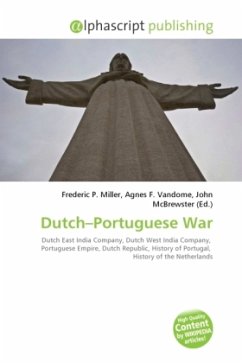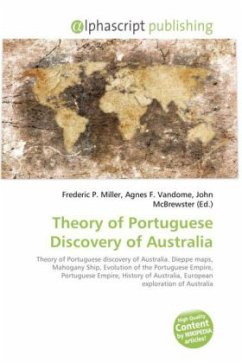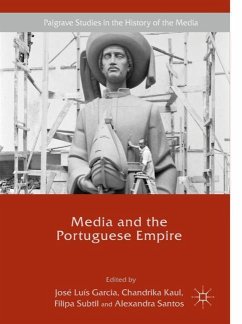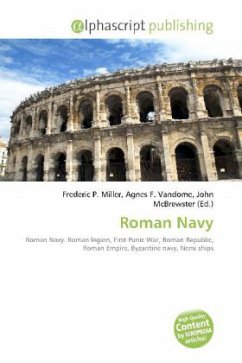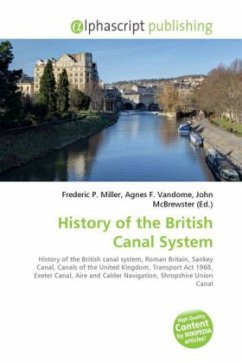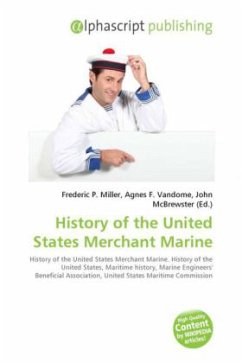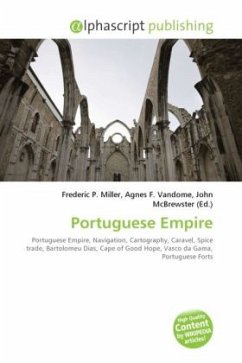
Portuguese Empire
Versandkostenfrei!
Versandfertig in 6-10 Tagen
23,99 €
inkl. MwSt.

PAYBACK Punkte
12 °P sammeln!
The Portuguese Empire was the first global empire in history. It was also the longest lived of the modern European colonial empires, spanning almost six centuries, from the capture of Ceuta in 1415 to the handover of Macau in 1999.Portuguese sailors began exploring the coast of Africa in 1419, leveraging the latest developments in navigation, cartography and maritime technology such as the caravel, in order that they might find a sea route to the source of the lucrative spice trade. In 1488, Bartolomeu Dias rounded the Cape of Good Hope, and in 1498, Vasco da Gama reached India. In 1500, by an...
The Portuguese Empire was the first global empire in history. It was also the longest lived of the modern European colonial empires, spanning almost six centuries, from the capture of Ceuta in 1415 to the handover of Macau in 1999.Portuguese sailors began exploring the coast of Africa in 1419, leveraging the latest developments in navigation, cartography and maritime technology such as the caravel, in order that they might find a sea route to the source of the lucrative spice trade. In 1488, Bartolomeu Dias rounded the Cape of Good Hope, and in 1498, Vasco da Gama reached India. In 1500, by an accidental landfall on the South American coast for some, by the crown's secret design for others, Pedro Álvares Cabral discovered Brazil. Over the following decades, Portuguese sailors continued to explore the coasts and islands of East Asia, establishing forts and factories as they went. By 1571, a string of outposts connected Lisbon to Nagasaki along the coasts of Africa, the Middle Eastand Asia. The trading networks these facilitated brought great wealth to Portugal.Between 1580 and 1640 Portugal became the junior partner to Spain in the union of the two countries' crowns.





